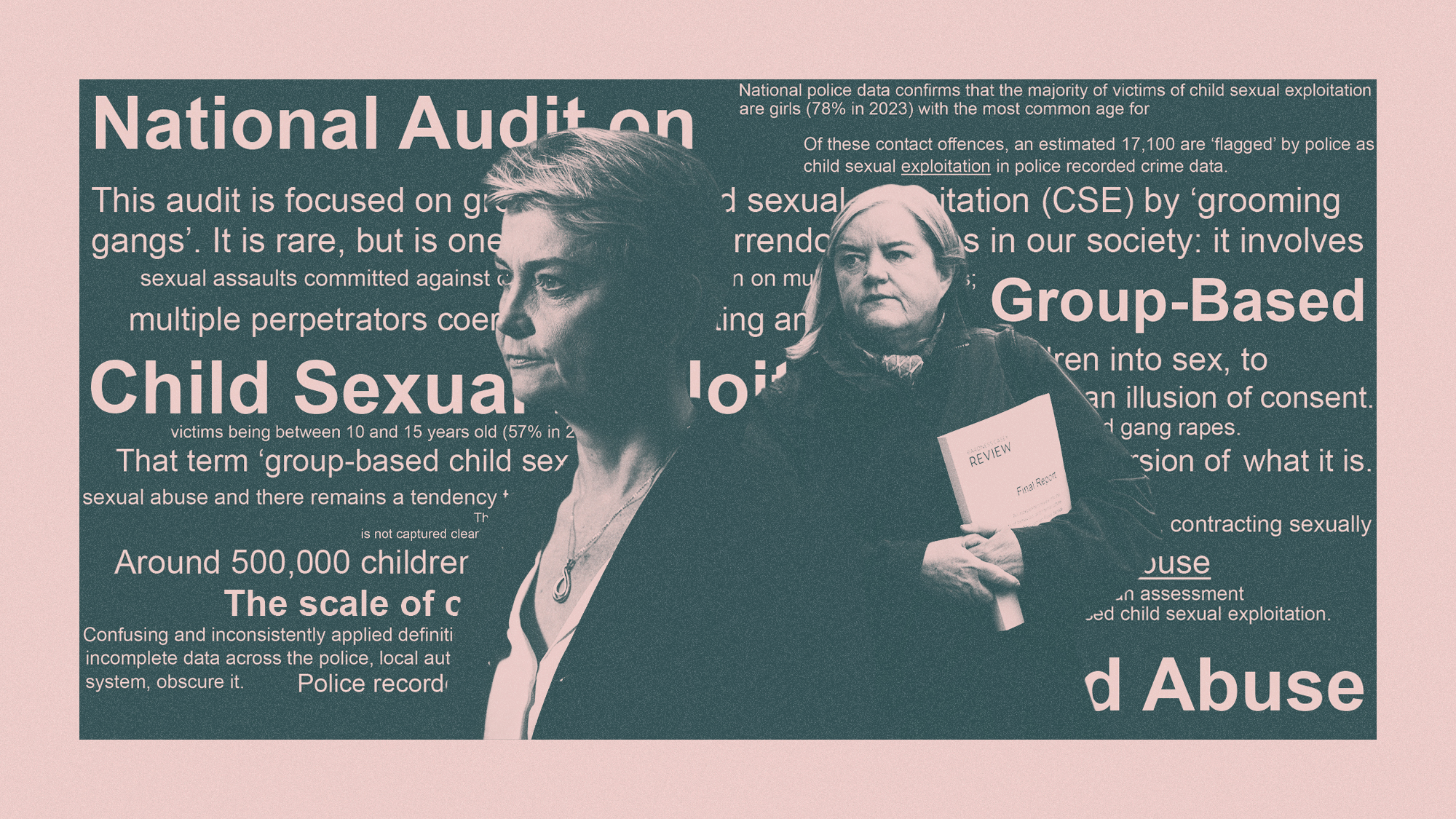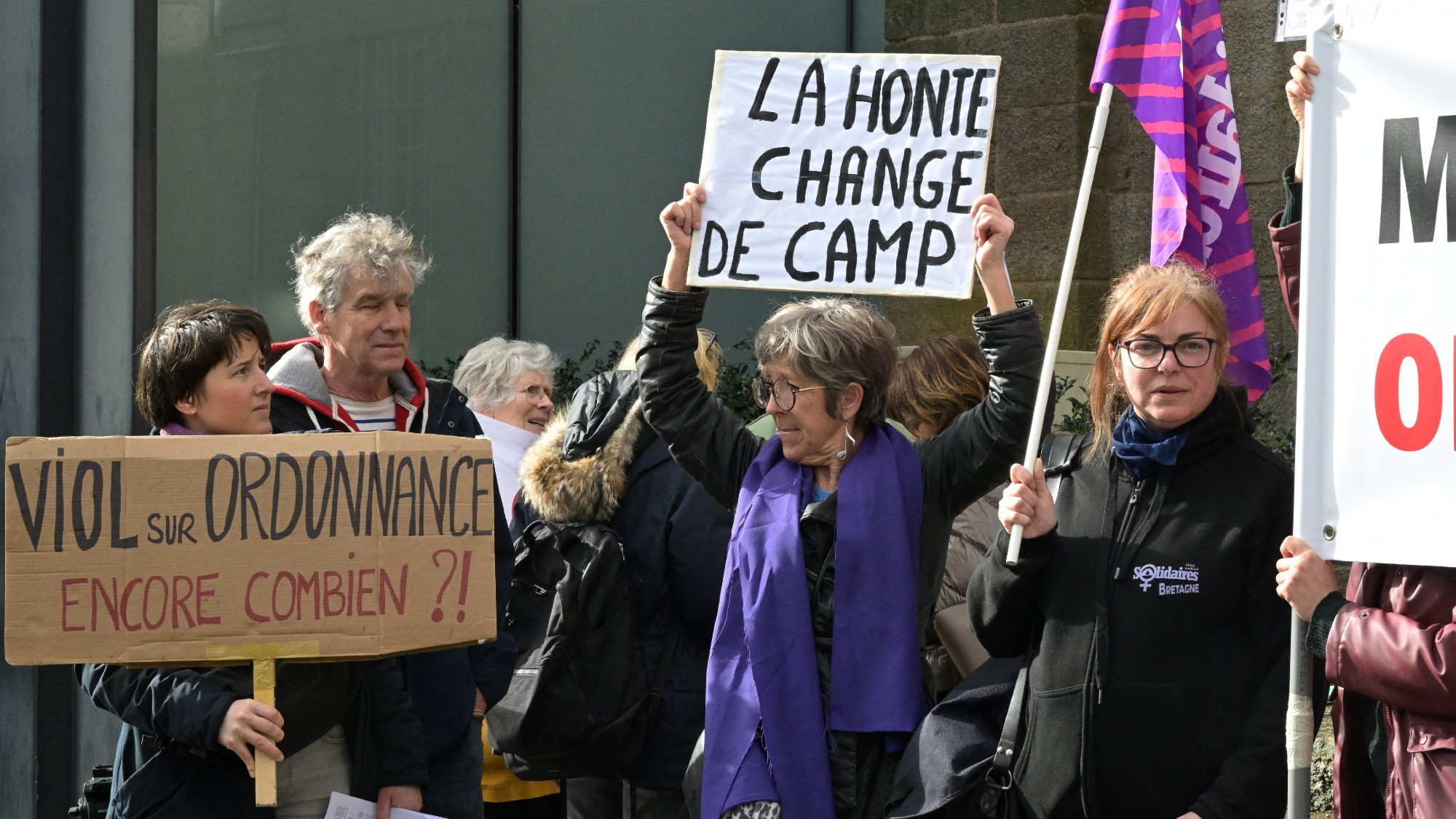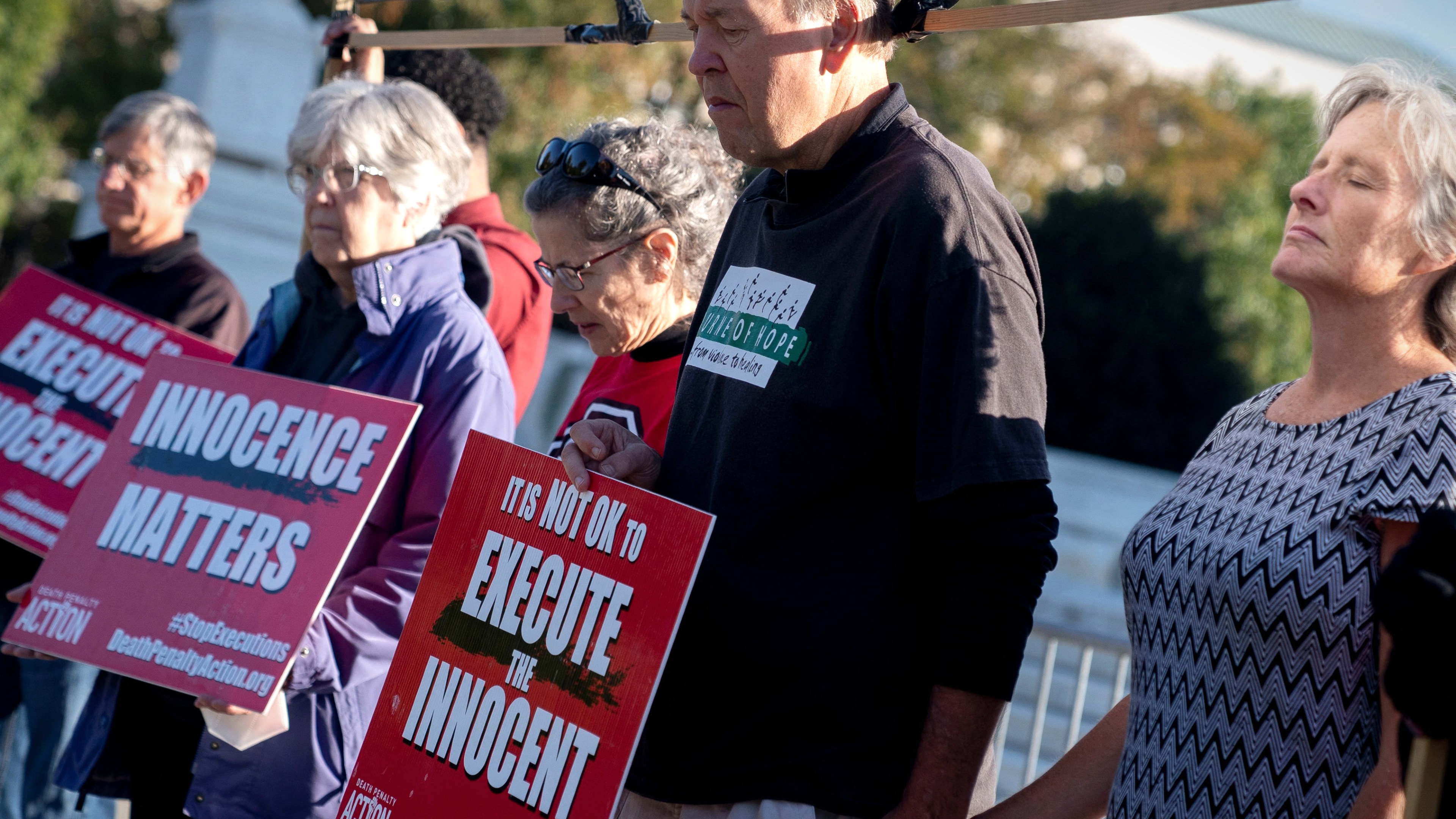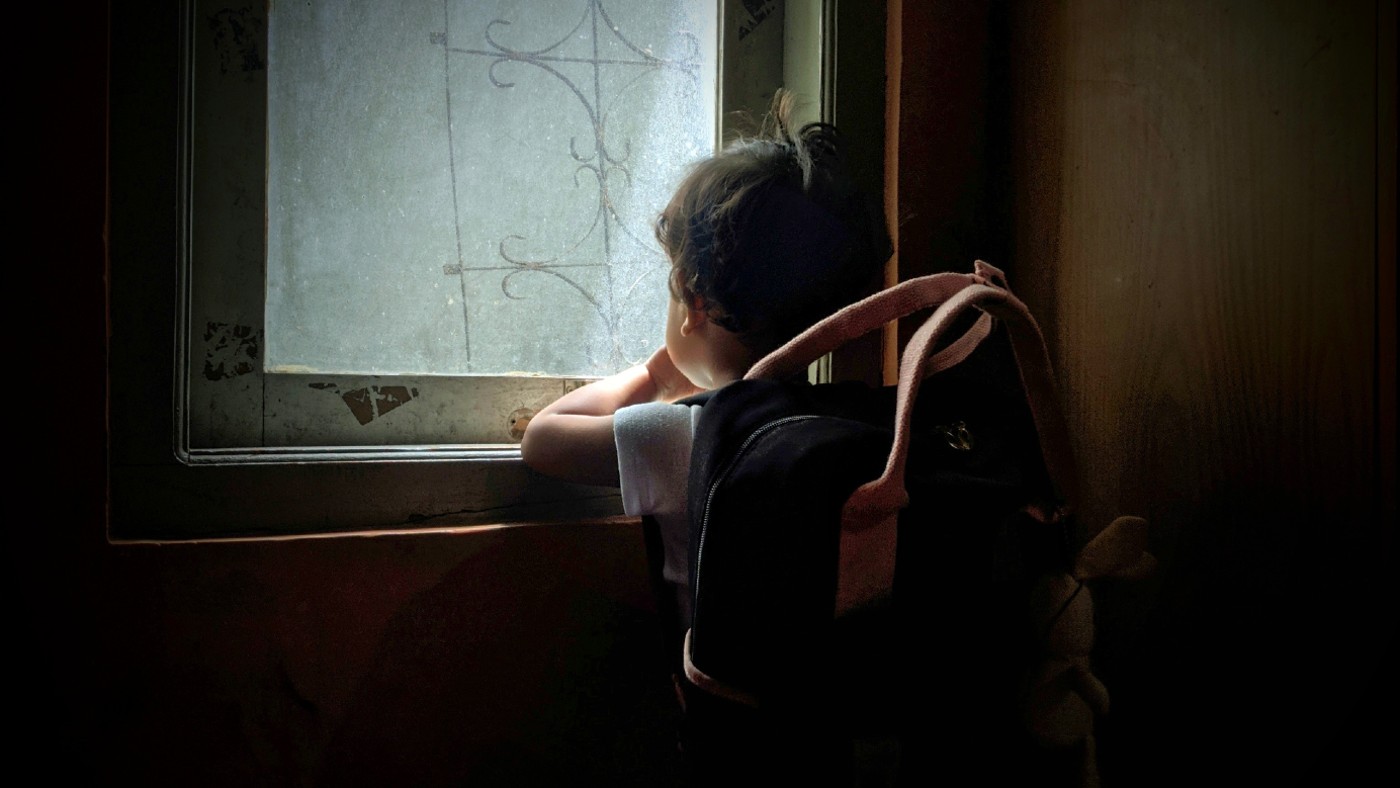Paedophile hunters and vigilante justice
Volunteers play a crucial role in prosecutions but professionals warn their work is a double-edged sword

A free daily email with the biggest news stories of the day – and the best features from TheWeek.com
You are now subscribed
Your newsletter sign-up was successful
A former MP was arrested on Saturday following a sting operation by amateur "paedophile hunters".
Sussex Police confirmed they had a 66-year-old suspect in custody after "footage circulating on social media" showed "a man in Brighton being detained on suspicion of engaging in online sexual communications with a child". The 30-minute "confrontation" was live-streamed on Facebook, said Brighton and Hove News. The man has not been charged.
The case has highlighted the role of amateur law enforcement groups and the ethical implications of putting vigilantes on the frontline in the battle against child sex abuse.
The Week
Escape your echo chamber. Get the facts behind the news, plus analysis from multiple perspectives.

Sign up for The Week's Free Newsletters
From our morning news briefing to a weekly Good News Newsletter, get the best of The Week delivered directly to your inbox.
From our morning news briefing to a weekly Good News Newsletter, get the best of The Week delivered directly to your inbox.
Supporters see them as a valuable resource that could be harnessed by police to become, with support and guidance from the authorities, an even more effective force for good.
To their detractors – who include many child safeguarding professionals – these groups are a menace. Their amateur stings can potentially tip off paedophiles and give them time to destroy crucial evidence.
How do online paedophile hunter groups work?
Dozens of paedophile hunter networks operate across the UK, under names such as London Overwatch, Predator Exposure, Dark Justice, Creep Catchers and Letzgo Hunting.
Volunteers create fake profiles on social media sites or messaging apps and pose as underage children. To abide by laws against entrapment, they wait to be approached and do not try actively to turn the conversation towards sex.
A free daily email with the biggest news stories of the day – and the best features from TheWeek.com
After laying the groundwork with weeks or even months of online chat, the sting operation culminates when the would-be predators suggest meeting up for sex. Expecting to meet their underage prey, they are greeted instead by members of the vigilante posse armed with chat logs.
These encounters are generally filmed and in some cases viewed by hundreds of thousands of people, as vigilantes verbally confront and harangue their targets while they wait for police to arrive.
How many convictions are secured this way?
Figures published by the BBC in 2019 demonstrate how online "paedo hunter" communities have become instrumental in convicting child sex offenders.
A call for information in 2018 – the most recent year detailed data on the impact of paedophile hunters in the UK has been released – revealed that of the 403 people prosecuted for attempting to meet a child following sexual grooming that year, 252 of those cases involved evidence gathered by paedophile hunting groups.
The number of cases involving paedophile hunter evidence had more than tripled in the space of two years – rising from 57 in 2016 to 179 in 2018 – while the proportion of cases involving this evidence had also grown, from less than 25% of cases in 2016 to more than 60% of cases in 2018.
Despite deep reservations from the policing and legal communities, the growing number of convictions involving volunteer evidence is testament to serious efforts in the paedophile-hunting community to make sure their work is professional and lawful.
What's wrong with leaving it to the police?
Many amateur groups see themselves as an unofficial auxiliary to overstretched and underfunded police forces, and – contrary to the stereotypes of angry mobs "taking the law into their own hands" – aim to ape the authorities as closely as possible.
Yet their tactics often exceed the boundaries of the law, the National Police Chiefs' Council lead for online child abuse activist groups, Assistant Chief Constable Dan Vajzovic, told the BBC.
He warned some were "perpetrating offences including extortion, blackmail and exhibiting violence against those that they are targeting", while these prosecutions "diverted police resources from more significant offenders".
This argument has been seized upon by the vigilante groups and their supporters, who say that they are eager to work more closely with the police.
What can go wrong?
The dangers posed by vigilantes also extend beyond the actual point of confrontation. Videos of such showdowns accrue thousands of views, likes and shares online, usually accompanied by a stream of heated comments.
Last year The Spectator reported a member of London Overwatch claiming the live-stream interview with the suspect while they wait for policy to arrive "is an essential part of the process – the shame of being outed as a paedophile discourages would-be future offenders".
But many fear that publicly "outing" suspected paedophiles against this backdrop could expose suspects and their families to retaliation and encourage further amateur witch-hunts. Naming and shaming suspects who have not been charged or convicted has particularly worrying ethical ramifications.
A father-of-three had his life "ruined" after being wrongly accused of being a paedophile in a sting, said the Lancashire Post. Unable to go home to his wife and children or stay with relatives, "he was left to return to his barber shop where he holed up in a tiny toilet room for four days fearing gangs would break into his shop and attack him".
Other cases include people being misidentified and wrongly arrested. In June 2023, two "paedophile hunters" became the first in the UK to receive prison sentences for vigilantism, after they forced a father to the ground and "berated and humiliated" him live on the internet, said the BBC.
As well as the inherent dangers of mixing inflammatory allegations with vigilante justice, there are risks that volunteers' amateur techniques or imperfect knowledge of the law could let criminals slip through the net.
Last November, the Police Service of Northern Ireland warned paedophile hunters were slowing down police investigations and could even prevent criminal justice outcomes.
It follows concerns over the type of evidence gathered by these groups, which "leaves potentially serious offenders free to move away without any legal controls on their movements or where they can seek employment disappearing without trace", said Belfast Live.
-
 The ‘ravenous’ demand for Cornish minerals
The ‘ravenous’ demand for Cornish mineralsUnder the Radar Growing need for critical minerals to power tech has intensified ‘appetite’ for lithium, which could be a ‘huge boon’ for local economy
-
 Why are election experts taking Trump’s midterm threats seriously?
Why are election experts taking Trump’s midterm threats seriously?IN THE SPOTLIGHT As the president muses about polling place deployments and a centralized electoral system aimed at one-party control, lawmakers are taking this administration at its word
-
 ‘Restaurateurs have become millionaires’
‘Restaurateurs have become millionaires’Instant Opinion Opinion, comment and editorials of the day
-
 Will the new grooming gangs inquiry achieve anything?
Will the new grooming gangs inquiry achieve anything?Today's Big Question Critics point to a previous inquiry's still-unfulfilled list of recommendations
-
 The violent turn 'pedophile hunters' have taken in the US
The violent turn 'pedophile hunters' have taken in the USIn the Spotlight These influencers have taken catching predators to another level
-
 France's 'reckoning' over largest-ever child sex abuse trial
France's 'reckoning' over largest-ever child sex abuse trialThe Explainer Joël Le Scouarnec case is latest in a series of high-profile scandals to have prompted 'deep soul searching'
-
 The rise of child 'witchcraft' cases in the UK
The rise of child 'witchcraft' cases in the UKUnder the Radar Faith-based child abuse, centred on accusations of witchcraft and demonic possessions, has harmed thousands of children
-
 The missed opportunities to save Sara Sharif
The missed opportunities to save Sara SharifTalking Point After each horrific child abuse case, we hear that lessons will be learnt. What is still missing?
-
 Texas set to execute dad in disputed 'shaken baby' case
Texas set to execute dad in disputed 'shaken baby' caseSpeed Read Robert Roberson's hotly contested execution would be the first ever tied to shaken baby syndrome
-
 Girls left 'at the mercy' of Rochdale sex abuse gangs, says 'damning' review
Girls left 'at the mercy' of Rochdale sex abuse gangs, says 'damning' reviewSpeed Read Victims 'badly failed' by council and police, said Greater Manchester mayor Andy Burnham
-
 Landmark report calls for compensation for child abuse victims
Landmark report calls for compensation for child abuse victimsSpeed Read Institutions ignored allegations and prioritised their own reputations, finds seven-year inquiry